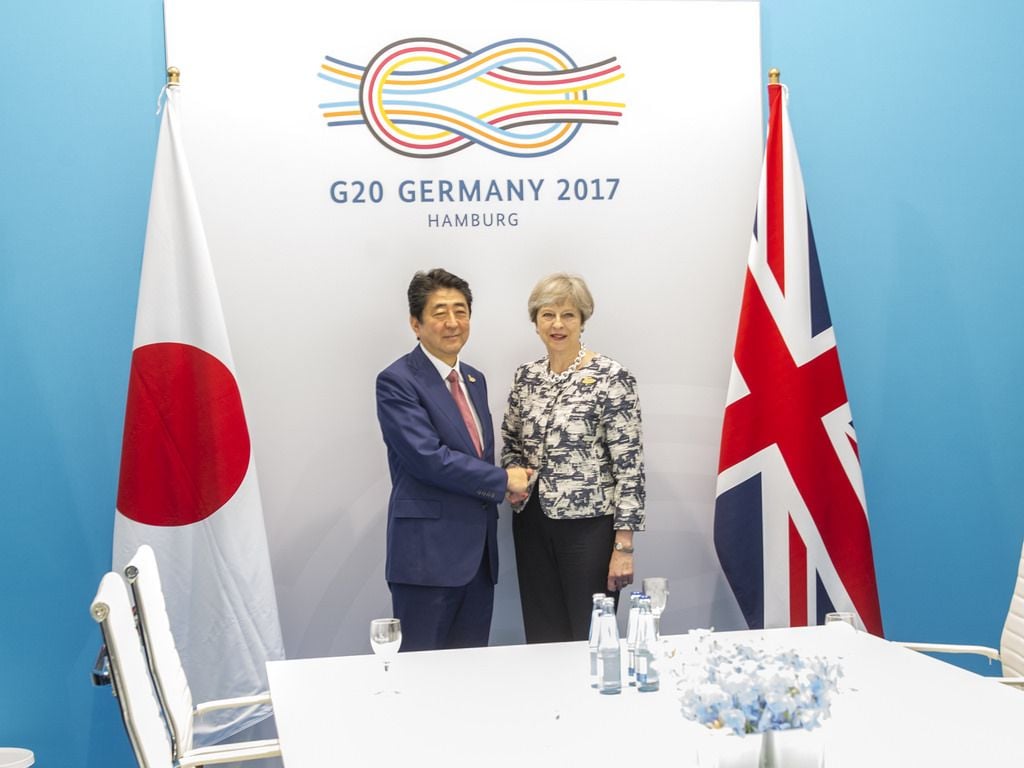Abe Paves the Way For Stimulus Deceleration and Potentially Stronger Yen

Image © Jay Allen, Photo: Crown Copyright
- Abe suggests quantitative easing programme to be dismantled.
- Could mean more monetary policy changes are on the horizon.
- Yen rises marginally on news but could have further to go.
The fad for politicians to comment on monetary policy continued on Friday after Japan's prime minister Shinzo Abe weighed in, saying the Bank of Japan's (BoJ) ultra loose stance didn't have to "continue forever".
We have seen how sensitive the market can be to this sort of rhetoric after the Dollar's slide following Trump's remarks about the Fed and the same with the Turkish Lira from comments made by president Erdogan.
In the case of Abe it was no different and the market took his utterances more seriously than they probably are.
The Yen got a boost off the back of the comments, with USD/JPY coming off its 112 highs and back into its comfort zone in the mid 111.80s.
In the case of Japan, the relationship between politics and monetary policy appears to be more interrelated.
'Abenomics' included a three-prong approach to the economy, with one of the three 'arrows' being accommodative monetary policy. Abe's admission that it need not "continue forever", therefore, indicates something of a turn-around from his previous stance.
Analysts have taken it as a sign that the wheels are turning and there are about to be some big changes at the BOJ. One possible option being discussed is that the BOJ could lower its inflation target after having spent years trying but failing to reach the current one.
"The ducks are being lined up for the BOJ to scale back on its inflation target ambitions (we've seen plenty of signs of this in past months) and therefore on its very, very easy monetary policy," says Eamonn Sheridan, a analyst for Liveforex. "This will not happen happen any time soon, but its happening in very small steps despite inflation being way below target. This will continue."
The BOJ has been quietly winding down its quantitative easing asset purchases for some time.
"There have been signs of change in BoJ’s QE operations recently, with a sharp reduction in ETF purchases in August, and a change to the JGB purchasing schedule for September," says Mallika Sachdeva, a strategist at Deutsche Bank.
Indeed, the BOJ's official rate of QE was set at 80 trillion Yen per year but it is only currently likely to purchase half that figure suggesting a de facto tapering is happening behind the scenes regardless of the official line.
The steady move to normalisation is likely to support the Yen in the medium-to-long-term all other things being the same. In fact Deutsche's Sachdeva sees the possibility of a more decisive move from the authorities as soon as the governing liberal democrat party (LDP) have had their leadership contest on September 20.
Abe is expected to win the contest since he has between 70-80% of the support of his party members, according to different sources.
Whereas before this might have been taken as a dovish sign for the BOJ, Abe's recent comments suggest the same inference cannot be made again.
For the Yen it could spur more gains in anticipation of a tighter regime on the horizon.
Advertisement
Get up to 5% more foreign exchange by using a specialist provider to get closer to the real market rate and avoid the gaping spreads charged by your bank when providing currency. Learn more here

